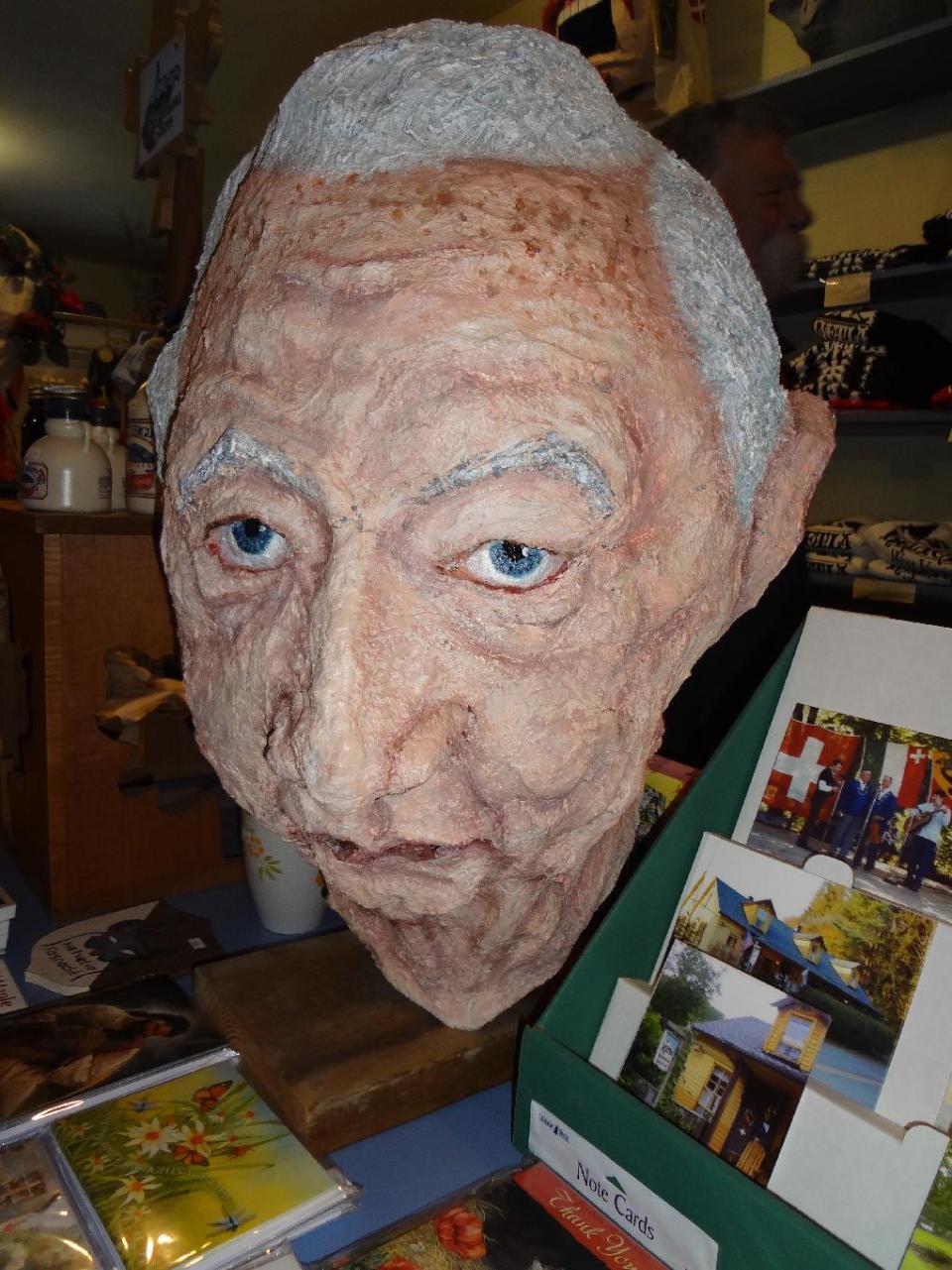W.Va. festival is the country cousin to Mardi Gras
HELVETIA, W.Va. (AP) — Fasnacht is West Virginia's country cousin to Mardi Gras — not as big and brash as the storied Louisiana carnival, but a pre-Lent party with the added purpose of scaring away Old Man Winter.
In the hamlet of Helvetia, the descendants of Swiss and German immigrants joined hundreds of people from across the state on Saturday, celebrating Old World traditions dating back to the Druids and carried on through generations.
They square-danced and indulged in drink, just like the Louisiana revelers. They donned costumes and masks. They saw old friends and played music until the wee hours of Sunday morning.
But the fiddle- and guitar-driven music is distinctly Appalachian, not jazz. And with temperatures at the freezing mark, the costumes don't show any skin. The masks aren't sexy, either. They're deliberately scary.
"The whole idea is to scare away Old Man Winter," who hangs in effigy above the dance floor until he meets his fate on a bonfire, said Aaron Williams, a native who returns every year for the festival.
Pat Johns of Morgantown has been making the 2 1/2-hour trek over narrow, twisty mountain roads for 23 years and has made just as many intricate masks, often winning the felt Swiss flags the judges hand out as prizes.
"It's definitely a labor of love, and over the years, it's been something that kind of consumes your life for a couple of weeks, at least, before the festival," she said. "Everyone in your family knows it, and everyone excuses everything that you've done during those two weeks."
The fright-fest doesn't always work: On Sunday morning, frost was still thick on the car windows and the snow lay frozen on the ground.
Helvetians say the magic takes time. But no one seemed to mind. Dozens slept deeply on the floor of the Star Band Hall, while the cooks at The Hutte restaurant whipped up a recovery brunch.
Fasnacht (pronounced FOSS-knocked) is also the name of a doughnut served on Fat Tuesday, a traditional sweet treat before Ash Wednesday. It's a tradition that European immigrant Catholics who settled Helvetia in 1869 initially celebrated privately in their homes, because most of their neighbors were Protestants.
Even those small celebrations died out for a while, but the practice was revived and expanded in the 1960s.
In the Helvetia Community Hall, dancers and revelers packed the high-ceilinged building wall to wall, leaving barely enough room to wriggle from the stage to the door. Every table in The Hutte was packed even at 8 p.m.
But Williams says the town always welcomes more.
"Make a mask or bring a mask," he said. "Be ready to come and have a good time."
___
Online:
Helvetia: http://helvetiawv.com/


